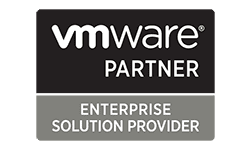What is an MSP and Their Significance to Your Business
Beyond Support: The Comprehensive Impact of MSPs on Business Efficiency and Growth
Kelsey Young, Copywriter and Media Specialist
6 Min Read

What are MSPs exactly? In short, Managed Service Providers (MSPs) are specialized companies that proactively offer IT management and support services to businesses, ensuring optimal operation of the company’s IT infrastructure and systems while minimizing downtime.
MSPs offer a multitude of services tailored to the unique needs of each business. These typically include:
- Network monitoring and management: MSPs oversee network performance, foresee potential issues, and take steps to prevent disruptions.
- Security solutions: Implement strong security defenses to safeguard businesses against cyber threats through firewalls, antivirus programs, and data encryption.
- Data backup and recovery: Conduct regular data backups and provide quick data recovery services in the event of loss or disaster.
- Service desk support: They provide timely technical support to employees, resolving their IT-related queries efficiently.
The Value Proposition of IT Managed Services
Leveraging their in-depth knowledge of industry best practices, MSPs can help streamline processes, boost productivity, and enhance collaboration within your organization.
One of the prime advantages of IT managed services is its role in ensuring seamless business operations. By partnering with an MSP, you can delegate the burden of IT management and concentrate on core business functions. MSPs like GDC (GDC IT Solutions) are experts and have resources to proactively monitor, manage, and support your IT systems, ensuring optimal functionality.
Furthermore, IT managed services can enhance business operations. MSPs provide proactive maintenance and regular updates, reducing the risk of downtime and minimizing disruptions. Some MSPs, like GDC, offer 24/7 Service Desk support, resolving issues promptly and efficiently.
Cost savings and efficiency improvements are another significant value of IT managed services. By outsourcing IT management, businesses can eliminate the need for hiring and training in-house IT staff, which can be costly and time-consuming. MSPs operate on a subscription-based model, enabling businesses to scale their IT services as needed and pay only for the resources they use. This not only reduces overhead costs but also ensures access to the latest technologies and expertise without a substantial price tag.
The Role of MSPs in Enhancing Business Operations
In terms of core business functions, MSPs enable organizations to focus on what they do best. By managing your IT needs, they free up your internal resources, allowing your employees to focus on strategic initiatives and revenue-generating activities.
Instead of reacting to issues, MSPs adopt a proactive approach by monitoring your IT systems round-the-clock. They can detect potential issues before they escalate into major disruptions, ensuring minimal downtime and maximum productivity.
Scalability and flexibility are crucial for businesses aiming to grow. MSPs offer scalable solutions that can adapt to your evolving needs. Whether you’re expanding your workforce, adding new locations, or implementing new technologies, MSPs can offer the necessary support and resources to ensure a smooth transition. This flexibility allows you to focus on your core business functions without worrying about IT infrastructure limitations.
By providing proactive IT management, scalability, and the freedom to focus on your core competencies, partnering with an MSP can revolutionize your business operations. With their expertise and support, you can optimize your IT infrastructure, enhance productivity, and drive business growth.
The Service Level Agreement
An SLA (Service Level Agreement) is a formal contract that outlines the expectations and responsibilities between the MSP and their client. They play a crucial role in the relationship between your business and the MSP.
Having a Service Level Agreement (SLA) is beneficial because it:
- Sets Clear Expectations: An SLA establishes clear, measurable expectations for service delivery, including specifics about performance, response times, and resolution times. This clarity helps prevent misunderstandings between the service provider and the client.
- Ensures Accountability: By defining specific metrics and standards, an SLA holds the service provider accountable for meeting the agreed-upon service levels, encouraging consistent performance.
- Improves Service Quality: SLAs incentivize service providers to maintain high standards of service to meet or exceed the outlined expectations, leading to better service quality for the client.
- Facilitates Performance Monitoring: With defined metrics, an SLA makes it easier to monitor and evaluate the service provider’s performance over time, enabling data-driven decisions about the service.
- Enhances Reliability: By committing to certain uptime guarantees and response times, an SLA ensures a certain level of reliability and availability of the services provided, which is critical for business operations.
- Protects Both Parties: An SLA protects not just the client but also the service provider by clearly defining the scope of work, thereby minimizing the risk of disputes and ensuring a fair agreement.
- Enables Scalability and Flexibility: Many SLAs include provisions for scaling services up or down based on the client’s needs, offering flexibility as the business grows or changes.
In essence, an SLA is a critical component of any service contract, providing a foundation for a strong and mutually beneficial relationship between a service provider and its clients.
Selecting the Right MSP for Your Business
When choosing a Managed Service Provider (MSP) for your business, you should consider certain criteria to make the right decision. Let’s discuss some of these criteria and understand the significance of Service Level Agreements (SLAs) in the selection process.
- Expertise and Experience: It’s essential to evaluate the expertise and experience of an MSP before partnering with them. Choose an MSP that specializes in your industry and has a proven track record of delivering reliable services.
- Range of Services: Consider the range of services the MSP offers. A comprehensive MSP should provide a wide array of IT services, including network security, data backup, cloud solutions, and IT support. This ensures all your IT needs can be met under one roof.
- Scalability: Your business will evolve over time, and your IT infrastructure should adapt accordingly. A competent MSP should be able to scale their services to meet your growing needs. Whether it’s expanding your network or accommodating an increase in users, the MSP should have the capability to handle it.
- Reliability: Downtime can severely impact your business operations. Ensure the MSP guarantees a high level of uptime and has measures in place to quickly resolve any issues that may arise.
Get Started with GDC IT Solutions as Your MSP
In summary, MSPs play a pivotal role in managing and supporting businesses’ IT needs. Their services can add value to your business by ensuring the smooth functioning of your IT systems, enhancing security, and offering cost-effective solutions.
With nearly 30 years of experience GDC is your premier IT service provider. We empower your teams and streamline your operations, so you have the freedom to focus on running your business.
With GDC as your MSP you’ll experience:
- Subject matter expert assistance
- 100% U.S. based service desk
- Around-the-clock coverage
- Custom IT support solutions
- Business understanding
- Improved customer experience
GDC offers a comprehensive range of IT support services that you can choose from based on your business’s unique objectives. Our IT management services are tailored to meet your needs, enabling you to get the most out of your technology’s capabilities.
We’re dedicated to providing our partners with high-level IT services while building meaningful relationships.




